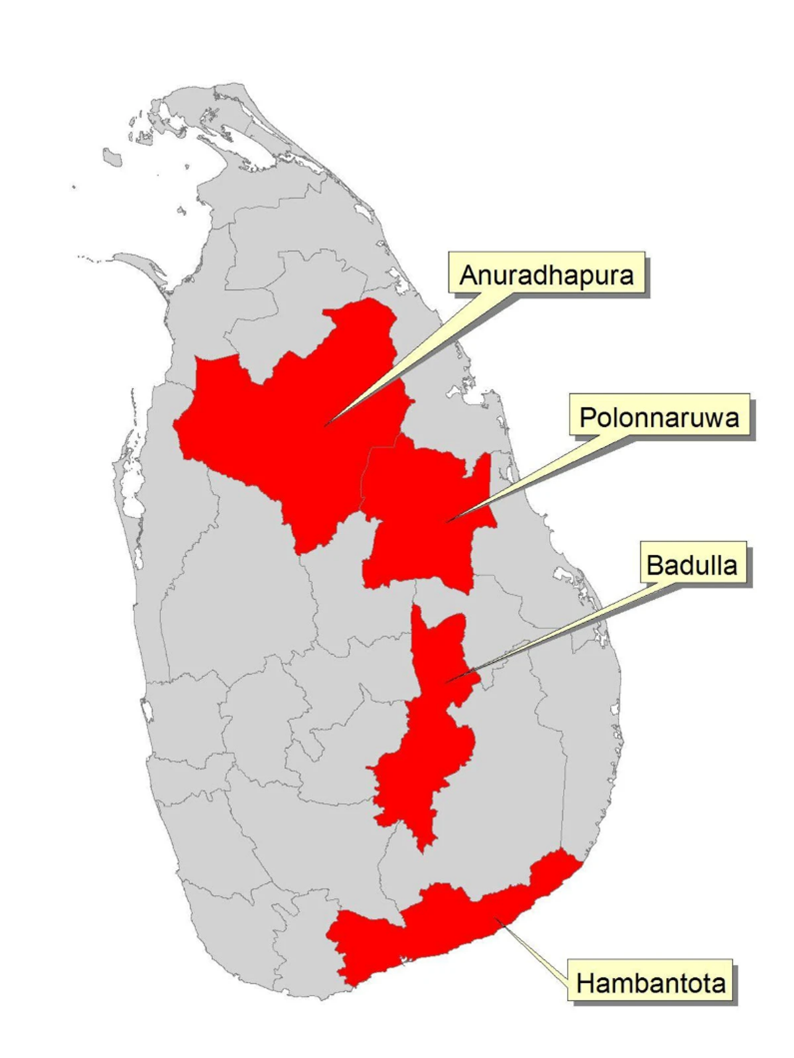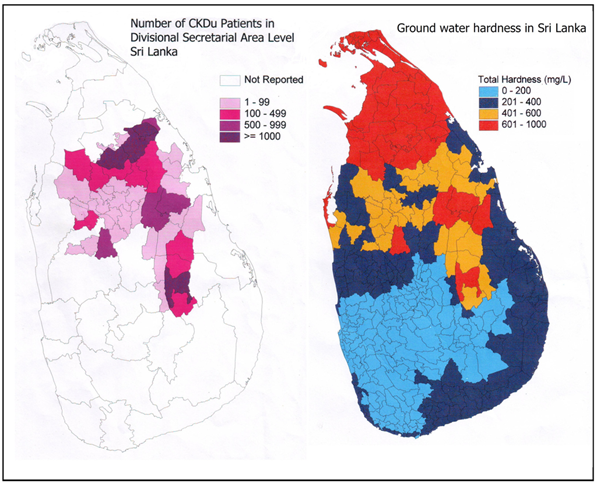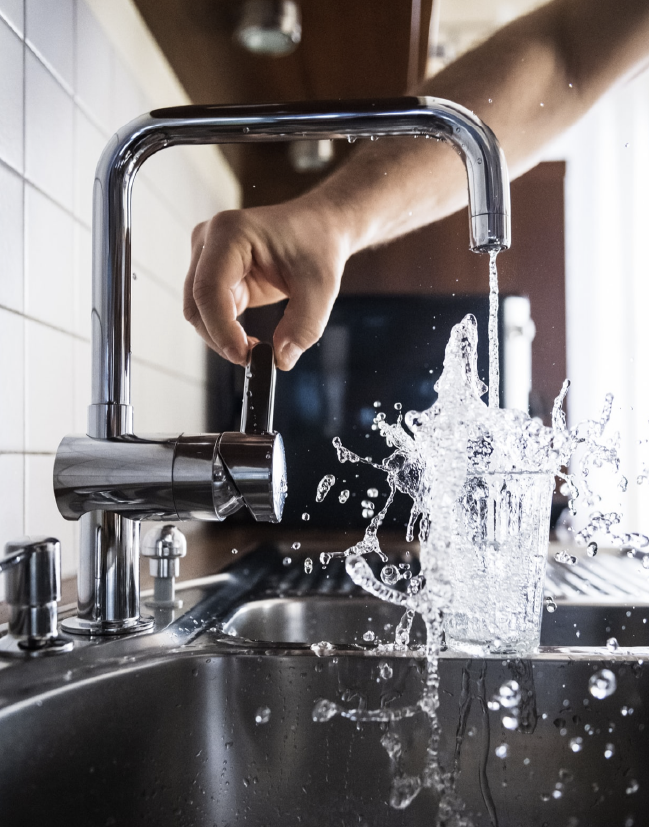Eradication of Chronic Kidney Disease
in Sri Lanka
Causes | Eradication of Chronic Kidney Disease in Sri Lanka
Urgent Need to Save Lives
Chronic Kidney Disease Crisis is Putting Lives at Risk

Map of Sri Lanka, showing the location of Anuradhapura, Polonnaruwa, and Badulla districts, in the endemic area, and Hambantota district, in the non-endemic area.

Over the last 8 years, several studies have been carried out to determine the prevalence, nature and causes of CKDu in Sri Lanka especially in North Central Province (NCP). These studies include hospital-based reviews of case series, in which high-risk areas in North Central Province were identified. The hospital studies gave rise to population-based surveys, which showed that the populations affected by Chronic Kidney Disease (CKD)u are scattered in the North Central region of the country.
A population prevalence study was conducted in three districts in the endemic area over the period 2010–2012. Arsenic, cadmium, lead and other metals, elements and pesticide residues that are potential nephrotoxins, were analysed in biological samples. The results from individuals with CKDu were compared with those from controls in the endemic area and a non-endemic area (Hambantota where CKDu has not been reported).

According to the proven scientific researches CKDu is directly related to the geographical distribution of patients with CKDu and ground water hardness in Sri Lanka. According to the Ground water hardness data- with the courtesy of Water Resources Board of Sri Lanka, a highly statistically significant positive correlation (p < 0.008) has already been revealed between the occurrence of CKDu in Sri Lanka and hard water consumption. 96% of the CKDu patients had consumed hard or very hard water for at least five years, from wells that receive their supply from shallow aquifers. Apart from that, the authors have made the following observations related to CKDu and the hardness of the drinking water
• Certain shallow wells (2–5 m), which were previously been used for drinking purposes are now abandoned due to high hardness and bad taste.
• There are a few natural springs located in the CKDu endemic area where water is not hard. People who consume water from these sources have been determined to be free from the disease.
Drinking water is a major pathway for entry of inorganic arsenic into the human body. The arsenic content in 99% of water samples was below the WHO reference value of 10 μg/l. However, it has recently been suggested that the concentration of arsenic in drinking water should be no more than 5 μg/l. CKDu occurs in areas where groundwater is the main source of drinking water. Groundwater in this region is known to have a high content of fluoride and calcium. People living in the region for generations have used groundwater for drinking without ill effects. However, hardness of water, the high fluoride content, poor access to drinking water and inadequate intake of water in a warm climate may influence the body burden and/or the excretion of heavy metals and oxidative damage to the kidneys caused by heavy metals. This study describes chronic kidney disease of uncertain aetiology (CKDu), which cannot be attributed to diabetes, hypertension or other known aetiologies, that has emerged in the North Central region of Sri Lanka.
Results show chronic exposure of people in the endemic area to low levels of cadmium through the food chain and also to pesticides. They may also be exposed to lead and arsenic through the food chain. Urine concentrations of cadmium and arsenic in individuals with CKDu were at levels known to cause kidney damage.
Thus, according to the research, it is proved that if they stopped using dangerous pesticides and insecticides and use the clean drinking water or the purified water the, population will be healthier and the generations can be saved from this fatal disease.
Why this cause needs your support
Solutions that make a difference
— To install a water filter which is a three-part unit that will purify the water from all chemicals to supply clean drinking water to all residents in these areas.
— The unit will be secured around with fully enclosed walls and roof.
— This filter will supply water to 4,500 to 10,000 people per day, the residents of these villages.
— It will carry a warranty to support 10 years of service.
— Kidney patients are currently buying bottled water. Remaining population and the money of the patients buying bottled water bottles can be saved if they are given purified water.

Why helping this cause matters:
— This filter will supply water to 4,500 to 10,000 people per day
Stop this now, before it gets worse!
We Need Your Help!!
Contribute to our causes
There is always a way to give a helping hand
BECOME A VOLUNTEER
Join Sri Lanka Foundation and get involved to help make a difference. There is always a need to make the world a better place.
GIVE A DONATION
Donate today specifically for this cause. Your contributions and support make an impact on the lives of those who need it the most.












